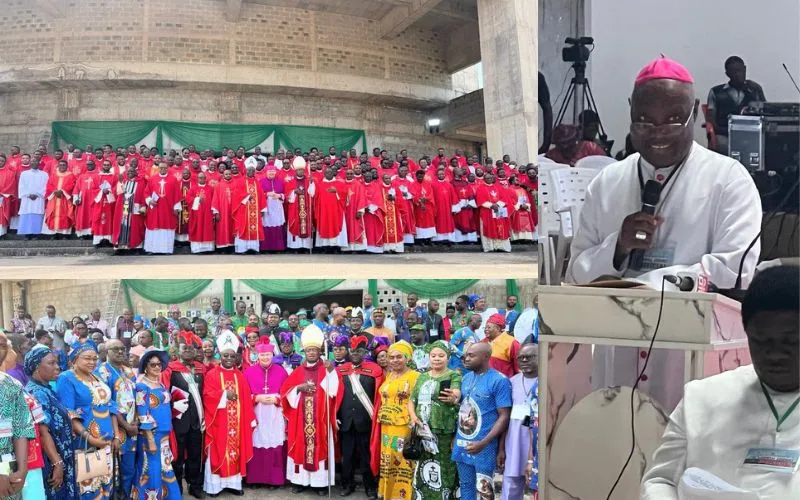Abuja, 29 November, 2024 / 9:16 pm (ACI Africa).
Archbishop Ignatius Ayau Kaigama of Nigeria’s Catholic Archdiocese of Abuja has urged Catholics in the West African nation to deepen their personal spiritual lives and align their faith with the teachings of the Church as they grapple with difficulties in life.
In his keynote address on the first day of the November 28-30 5th annual Abuja Archdiocesan General Assembly, Archbishop Kaigama warned against what he referred to as the “Holy Ghost - fire syndrome”, emphasizing the need for a spirituality based on personal conviction rather than a superficial approach influenced by belief in witchcraft and superstitions.
“We are called to deepen our personal spiritual life in the light of our Catholic tradition; to move from infantile spirituality to a solid spirituality borne out of personal conviction,” the Nigerian Archbishop said at the three-day event organized under the theme, “Deepening Our Catholic Identity and Spirituality in the Catholic Archdiocese of Abuja.”
He highlighted the tendency among some Catholics to blame difficulties, such as sickness, financial struggles, or other challenges, on spiritual attacks or witchcraft, cautioning them against returning to “the people in the village are after me” spirituality.
The Local Ordinary of Abuja since November 2019 said such kind of superstitious spirituality gives the Holy Spirit only a secondary position in one's life.





